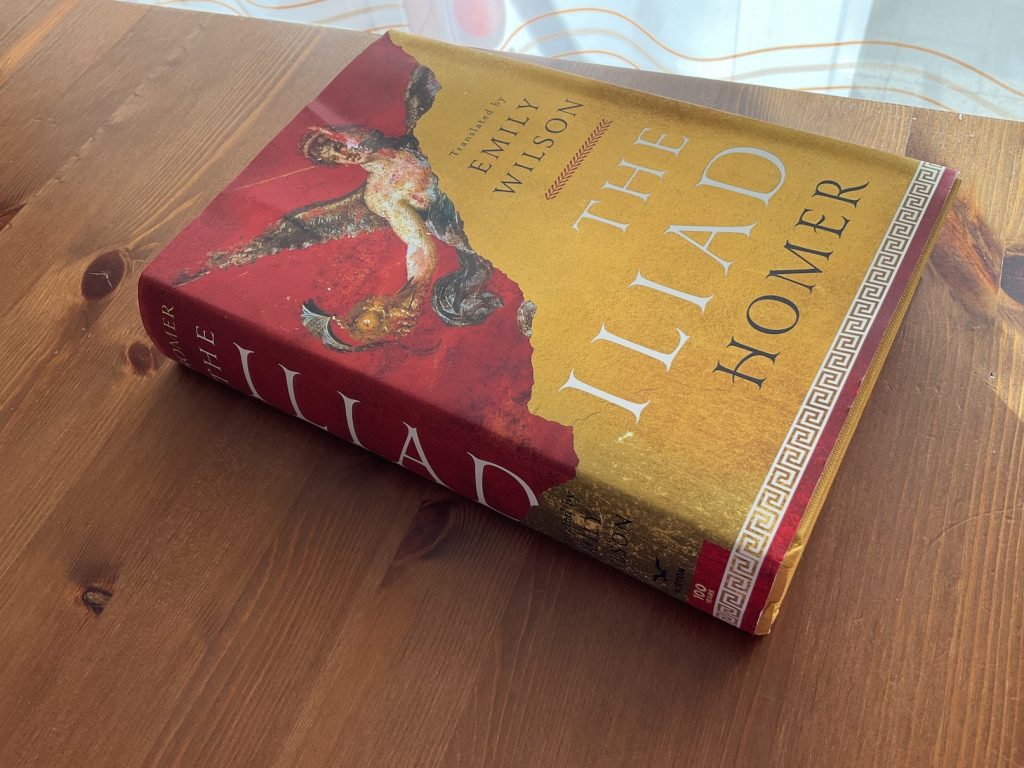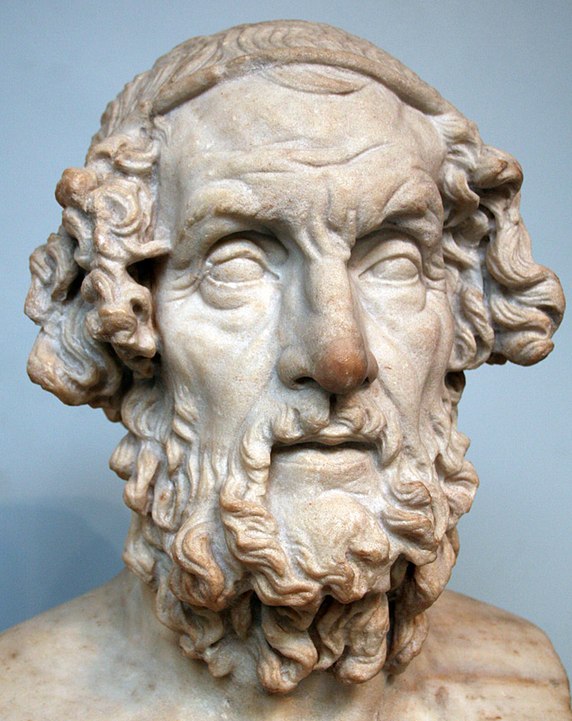Project-in-Waiting
So personally rewarding and intellectually enriching was a previous project in which I studiously followed through with a reading of Emily Wilson’s 2017 translation of Homer’s Odyssey – an endeavor that stretched over an entire year – that I would like to set forth again on another literary escapade; again, with the intention of an equally rigorous (but unfettered by expectation) immersion in Wilson’s newly published translation of The Iliad – considered by many to be the more complex of the Homeric epics. Though I have read and explored the Iliad at other times (as the name I write under here suggests!) and in other translations and contexts, I look forward to doing so again – especially this time with this translation – in some form or another. (I admit to having browsed excitedly through this new volume immediately it landed on my doorstep; dipping in, tasting again that particular rhythm and cadence that Wilson brings to her translation, and which had so enchanted me previously.)
I already imagine (though I am not absolutely committed; this to be determined by the necessary motivation and available time) a future project presenting itself in a similar format as that of the Odyssey; writing or posting in some (not yet defined) format as I read, with some regularity and without any unqualified attempt at interpretation, rather reflecting my own personal, perhaps idiosyncratic, meditations along the way. What I definitely can say is that any future commentary and ensuing citations – page numbers, book numbers and their titles – will follow my own hardback first edition copy:
Homer, The Iliad, translated by Emily Wilson, First Edition, New York: W.W. Norton, 2023.

For my Odyssey project I video-recorded my readings; a first for me ([muted applause] Stop, I say!), and which was absolutely not a vanity thing (here speaks one amongst those of my acquaintance who shudders when faced with the task of a selfie or the like even in own company!), rather an approach decided upon having become infected by Wilson’s own enthusiasm for recitation and her encouragement for others to follow suit. In the end, I indeed found the effort worthwhile in helping me maintain concentration and involvement in the text and narrative; for that reason, it is an oral exercise that I would very much like to repeat; however, I also now know that it is one that demands a significant amount of time and space – the former (despite my incessant claims to the contrary!) I can arrange; the latter, not always – and so I may have to be a bit more modest in my aspirations and selective in my intentions.
Poet and Translator

Having written before on this most unlikely pair; the ancient Greek poet, Homer, and this, his (or their) most recent and, I would contend, most interesting of modern translators: Dr. Emily Wilson, professor of classical studies at the University of Pennsylvania, it is hardly necessary that I do so again in any detail. Besides, in respect to Dr. Wilson, her renown is now such that there is a multitude of information – from her and about her – available in the internet, and, when it comes to the ancient bard, sowieso.
But in these days we call our own, when digital (and beyond, see A.I.) mass reproduction and the ensuing aesthetic dominate, it is difficult to get away without pictures – moving or otherwise – and visual representations are, after all, a powerful stimulant for the imagination. With this in mind, and with the observation that Homer surprisingly still retains the same stony gaze and, momentarily feigning blindness to the vagaries of the historical record, I republish an image (r.); chiseled from marmor, then iterated until the imagination and reality has morphed into one thing, something akin.
The very few years that have passed and the extraordinary success that has come her way, have also done little to change Emily Wilson’s charm and presentation (neither blinded by her success nor stony in her demeanor! but surely the tattoos are new?), but I did want to add something recent and so below is the video of an event at the Library of Philadelphia a short time ago to promote her newest work. Here, she is in conversation with Sheila Murnaghan, chair of the Department of Classical Studies at Penn (and, therefore, Emily’s colleague).
As the end of the year quickly approaches, I presume this to be a “project-in-waiting” of sorts – on my agenda for sometime in the next, or beyond. For the time being, I will pin this notice of intent under a new menu item in Classical Diversions, and will post here again in a timely fashion when I am ready to begin. I will of course remain alert to articles, reviews, interviews, etc. on the aforesaid writers and their epic adventures in this earthly space time continuum or perhaps another.
